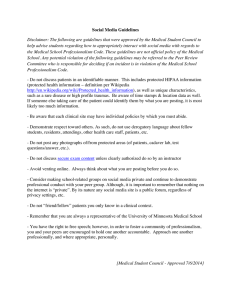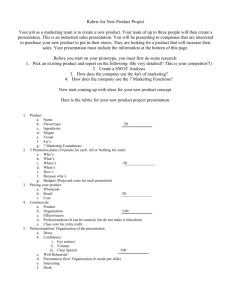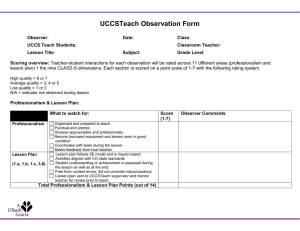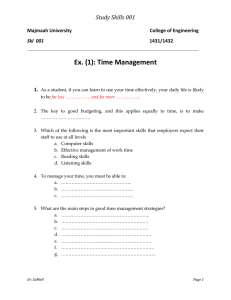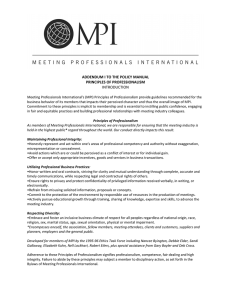Dr.Sawsan mustafa Abdalla Associate Professor Department of Community Medicine
advertisement
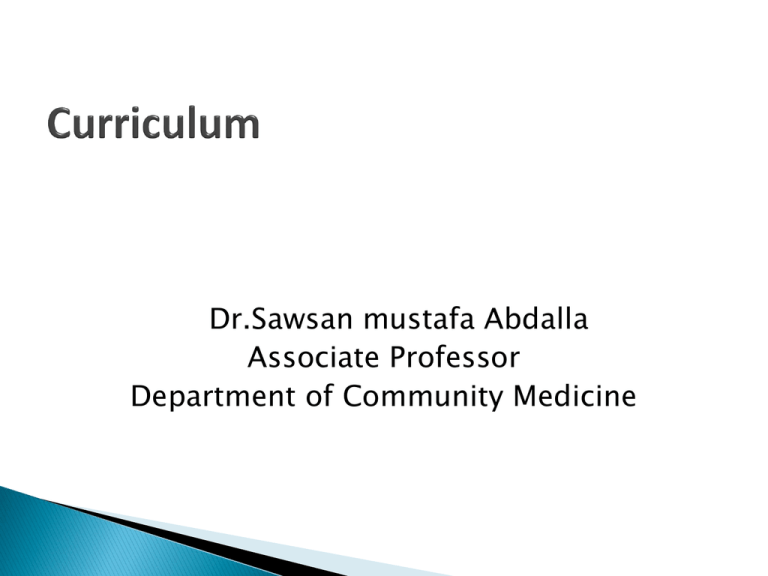
Dr.Sawsan mustafa Abdalla Associate Professor Department of Community Medicine The curriculum is the living document, that details the educational outcomes which are: philosophy organizational structures teaching and learning methods assessment management and quality assurance processes Curriculum is the soul of the medical school. Curriculum articulates : beliefs spirit and priority of a medical school. Steps of Preparations: 2.5 years of effort of a group of local and international experts with a wealth of experience in developing medical curricula. Steps of Preparations: review of cognitive science best evidence and best practices in medical education and careful considerations for available resources and local priorities. Inputs: creating a solid foundation of basic sciences and providing students experiences. with high quality clinical emphasizes higher clinical relevance and patient exposure from the beginning. Inputs: strong emphasis on ethical, moral, and professional behavior and a greater opportunity for promotion of independent and self-directed learning throughout the course of study. The College of Medicine aims: to develop physicians with work-based competences through high quality educational experiences using best evidence and practice in education The College of Medicine aims: and application of appropriate modern technology To graduate physicians to serve the current and future needs of their local community and Saudi Arabian population at large. The seven core values espoused by the College of Medicine are: Quality and Perfectness Initiative and Productivity Commitment Justice and Equality Confidence and Mutual Respect Teamwork; and Professionalism It is envisioned that the graduates from the College will be: scientific in their approach to practice; proficient in clinical care community conscious scholar and above all professional. In fact, professionalism forms the solid foundation for the four outcomes. These five outcomes are further subdivided by 59 competencies which mirror the Saudi Competencies. Educational philosophy of the College of Medicine is based on: the principles of outcome-based student-centered self-directed and life-long learning horizontal and vertical integration planned repetition of content (spiral approach) and skills with increasing complexity, and valid and reliable assessment that supports the student learning. It incorporates ethics and professionalism from the very beginning of the curriculum. Students will gain experience in healthcare from the first year to help them contextualize their learning. Structurally, there will be seven years of study Phase I (preparatory year; one year in duration) prepares the students for the actual study in medical school. This phase runs under the University administration. Phase II: (the first 2 and ½ years of the Medical College) will focus on biomedical sciences with clinical relevance. Phase II, which is in progress now, is structured around body systems with emphasis on normal and abnormal structure and function. Academic Skills Approach Research Phase III: Core-clinical Practice Phase II: Fundamentals of Medicine Phase I: Preparatory Year Other Longitudinal Modules Clinical Phase IV: Internship Ethics & Professionalism & Community OVERVIEW OF MAJMAAH MEDICAL CURRICULUM Phase III : starts with Clinical Skills Foundation Course, followed by clinical experience in: Emergency and Family Medicine as these two specialties are most likely to provide students firsthand experience with undifferentiated patient and accompanying health care problems. Following that, students will rotate through two other core disciplines namely, Medicine and Anesthesia and Surgery; and then to other disciplines such as pediatrics, orthopedics and trauma, obstetrics and gynecology, psychiatry, dermatology, diagnostic radiology etc. Case Based Discussion (CBD) : interdisciplinary, and multi-system disorders to provide students uniform, in depth exposure to core problems in the community. Phase IV signifies the total immersion in the workplace by means of an internship program lasting one year. The overall goal of assessment is to improve student learning It is vitally important that the assessment meets the vision of the curriculum and its outcomes Assessment provides students, parents/guardians, and teachers with valid information concerning student progress and their attainment of the expected curriculum outcomes Assessment should always be viewed as information to improve student achievement. The document also states the college's mission, vision, values, broad aims and objectives, and admission criteria : الرؤية أن تكون الكلية بيئة منافسة للتعليم الطبي تساهم في تحقيق .أهداف التنمية المستدامة Vision: The College of Medicine Majmaah University will be a competitive environment for Medical Education that facilitates achieving objectives of continuous development. Professionalism Scholarship Community orientation Clinical care expertise Scientific approach MAJMAAH EXIT LEARNING OUTCOMES Thanks 25
